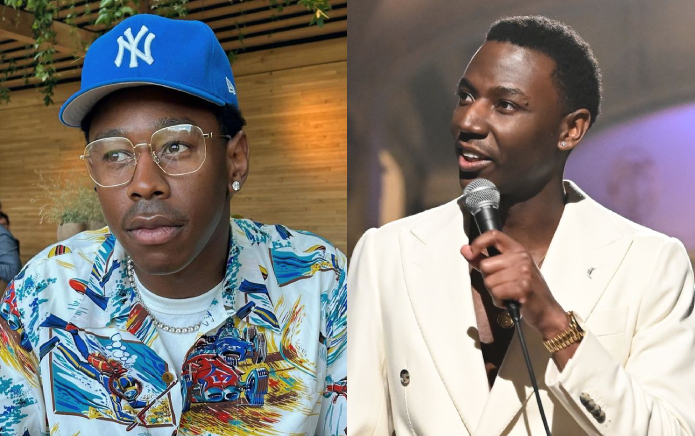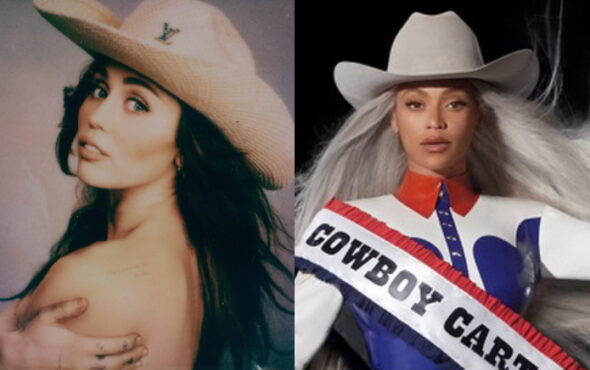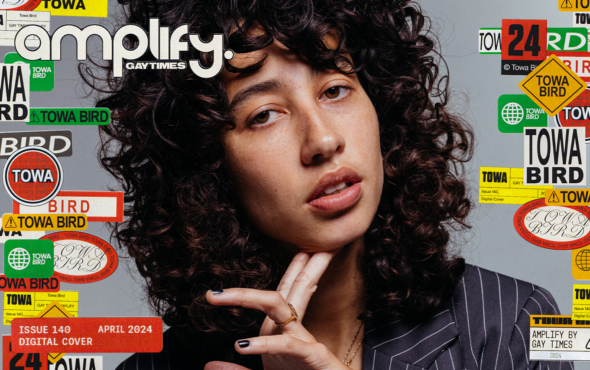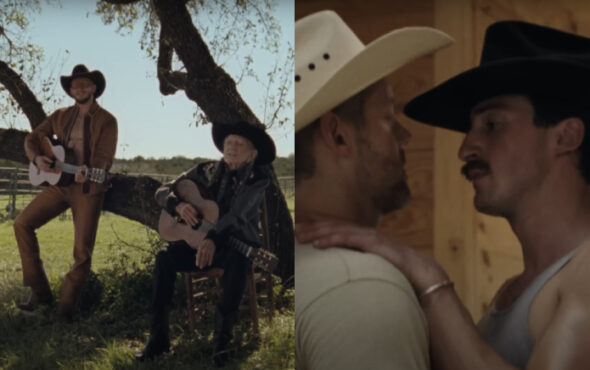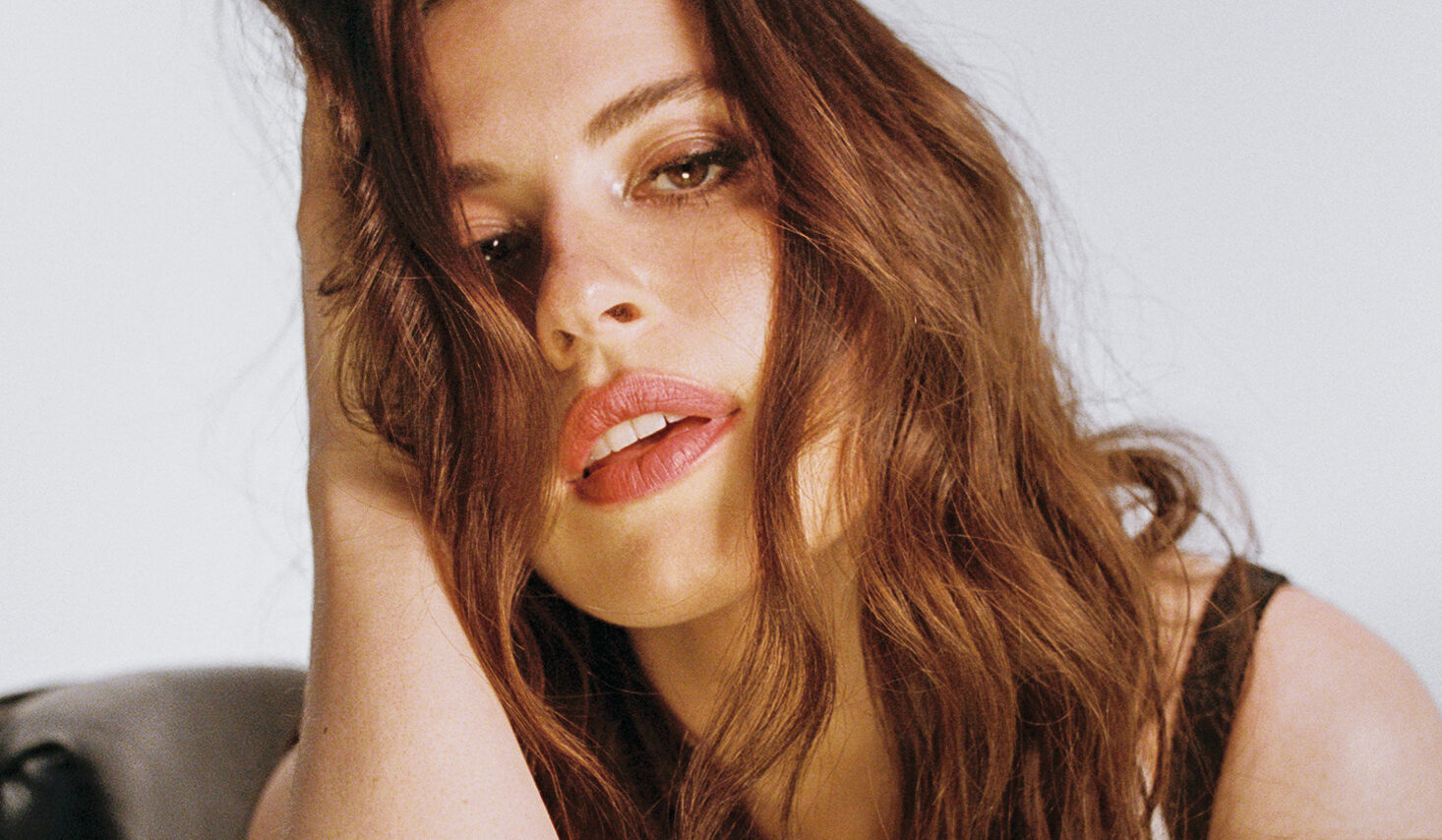
Cari Fletcher’s life is like a real-time representation of Alice Pieszecki’s infamous The L Word chart. So when she gleefully quizzes me to guess who photographed our GAY TIMES cover shoot, I’m not surprised by the answer: her YouTuber ex-girlfriend, Shannon Beveridge.“It’s the gayest shit of all time,” she laughs.
Fletcher’s world is a chaotic web of lesbian drama, a self-aware flux of sapphic moments she cunningly lets play out on the internet. Whether it’s releasing her 2020 break-up EP The S(ex) Tapes about Beveridge, who also produced the project’s visuals, or supposedly sparking a “lesbian breakup curse” on TikTok in 2022 – a frenzied saga that even caught the attention of queer artists King Princess, Hayley Kiyoko and G-Flip – Fletcher is never far from the WLW theatrics. After all, who can forget the entertainingly messy ‘Becky’s So Hot’ fiasco? An Instagram stalking slip-up led to Fletcher accidentally liking a photo of her ex-girlfriend’s new girlfriend – and, naturally, she penned a song about it all. Intentional or not, the singer is cleverly well-placed in it all. If you ask Fletcher about it, she’s here “for the chaos”.
The Fletcher effect doesn’t end there either. The 29-year-old is something of an LGBTQIA+ flagbearer and if you listen to her music, regardless of whether you are queer or not, you’re invested in lesbian lore. On social media, die-hard fans (aka fletchfam) flock to every image, throwaway thought or video: an influx of likes, replies and memes are shot off from keyboards responding to anything the New Jersey singer posts. It’s next level fandom – but it’s intimate too. Her followers call her ‘Cari’, they sell out limited merch runs, and share filmed video responses to single drops, tagging the singer who always reposts them. It might feel like a cheesy marketing gimmick, but it’s all a joyful inside joke that Fletcher and her listeners are part of.
You could say that Fletcher was always destined for this kind of success. Born in Asbury Park and raised in a small, conservative New Jersey town, Fletcher grew up surrounded by the musical legacies of artists like Bruce Springsteen and Patti Smith, some of whom have inspired her own writing. Immersed in a buzzing music scene, the musician was quick to find her rhythm as a performer and, as a teenager, landed double crowning achievements – high school homecoming queen and a spot on X Factor US. Now, not yet 30, Fletcher has spent over a decade grafting to make her name known, and it has paid off. She’s attentively carved out a space in pop that allows her to openly express herself and cultivate her sound as an openly queer artist.
But, in 2023, as the singer prepared for her biggest career highs yet, her plans were put on hold – following a Lyme disease diagnosis, she had to cancel extensive international tour dates and festival bookings across Europe, the UK, Australia, and New Zealand. Now, several months later, she’s back promoting her sophomore full-length album In Search Of the Antidote and itching to get things started again – and that’s where I find her, winding down in a makeshift media room in her record label’s London HQ.
Just a few minutes ago, she had vulnerably sat in front of a crowd of 100 industry and media faces to playback her new pop-rock record. Coming down from the high of sharing new music, she’s enthralled by the reaction to it all: “The music was created by me, but the minute that it gets shared, it becomes somebody else’s – it’s such a freeing thing to play your music for people for the first time.”
At the time of writing, a handful of diaristic singles have already been released, each a provocation of experiences she faced in recent months – heartbreak, insecurities and illness. The tracks offer a glimpse into her formative new beginning; a pop-studded look into her world, one curated specifically for her listeners. It’s built on an impassioned manifesto, one she read aloud during the playback, tightly holding onto her phone. During this, she recalls moments of despair, contemplating life “outside of accolades” and how she’s rebuilding around her diagnosis, searching to cure the upheaval in her life.
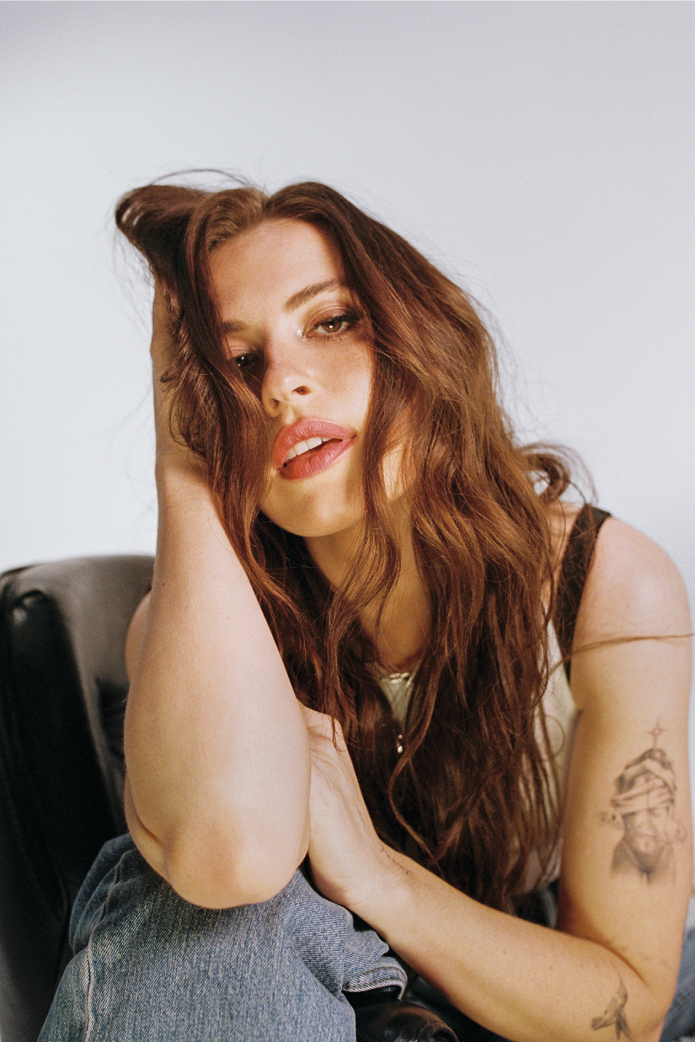
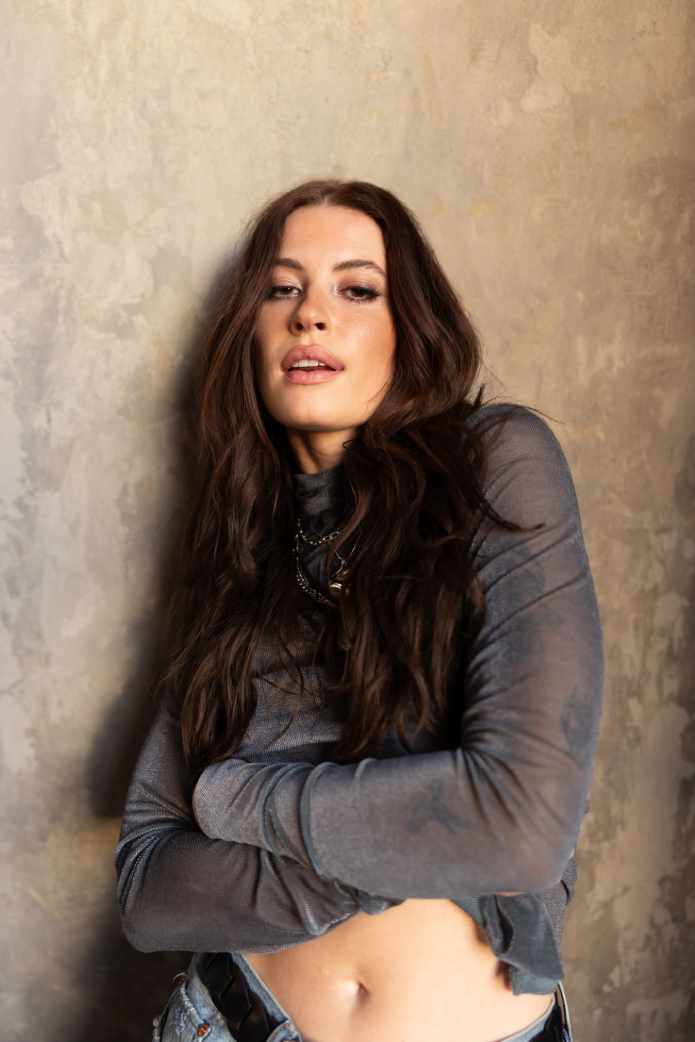
So, cue: lead single ‘Eras of Us’, an emotional cure to an unsettling year. Imagine, you’ve long been broken up with your ex-girlfriend and, unexpectedly, you bump into each other – at a Taylor Swift concert. For Fletcher, this happened with Beveridge and then, of course, it went viral with millions of views. An ode to their time together and the overlap in that moment, a day later, Fletcher went to a studio and wrote the lead single. “Taylor Swift is an artist that has narrated so many of my breakups and romances, so to then run into your ex-girlfriend for the first time since the day you broke up – I was like, ‘Is this a real, is it a dream, a nightmare?’ Also, the trajectory that we’ve had of being strangers, to lovers, to perceived enemies,” she says, singing the latter to the melody of Reneé Rapp’s queer ballad ‘In The Kitchen’.
It’s fitting, then, that Beveridge brings our cover story together, visually, marking a healthy reunion for the two. “It feels so, so beautiful. full circle and so healing to have done the Shannon shoot. She is truly one of the most talented photographers and creatives I know and have ever known,” she says. “I have always trusted her eye. I trust her vision and to create [this] within a new era of us is so healing.”
If you ask Fletcher how she’s recovering from 2023, she’s doing better, mostly. She’s leaving less space for turbulent breakups and pivoting to focus on healing from health issues. She’s started IRL hot yoga lessons, an online meditation course and is practising mindfulness with someone, who incidentally, has the same surname as her. Her realigned routine is to combat her packed schedule. As Fletcher, she’s constantly on the go. Her next few days are planned across Europe with more playbacks and media promo days pencilled in. But, for now, she’s comfortably unzipping her black boots and decompressing in our dim-lit media room. Her new routines (applying moringa oil and relaying mantras) have become a grounding reflex, she’s taking care of Cari so she can keep up with the pop persona of Fletcher.
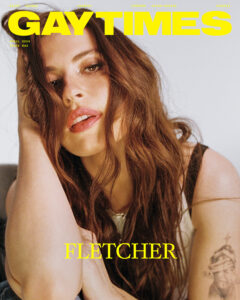
So, how has she dealt with the past year of self-reflection and stepping away from music? With difficulty but, also, self-love. “I’m still deeply in that right now. I’m not going to sit here and say that I’m so in love with myself and I’m so healed and my self-love journey is complete, I don’t feel that way,” she says. Aspects of her life that she thought she had addressed – growing up in a conservative town and raised in a church-going Catholic family – seemed to resurface during her health-determined career break. “I’m still working on the deep childhood beliefs that always, somehow, even in any new experience, remind me that they’re here. Sometimes, it feels like a constant excavation ‘Oh, fuck, I thought I’d healed that, fuck, I really thought I healed that,” she explains.
On In Search Of the Antidote, we hear from Cari, rather than Fletcher, as the two personalities learn to co-exist. While the album might fall under the name of Fletcher, it’s the sincerity of Cari that comes through the record’s diaristic songwriting. We learn that Cari loves her parents and her overly protective friends, that she still feels attached to New Jersey and that she truly believes love can heal everything. For years, Cari Fletcher was condensed to a mononymous stage name; a breakthrough queer pop act that hung out with Taylor Swift, sold-out endless shows and made playful TV cameos like on The L Word: Generation Q. But, last year, that changed.
“I was sick receiving a Lyme disease diagnosis and having to pull down tours and disappear. I had to look at myself and find my relationship to me outside of my career,” she recalls. In the silence, Fletcher had to imagine life escaping on headline tours and her deeply unserious fanbase shtick of (consensually) signing boobs for a living. During this time, the singer was forced to reckon with the ways she had been focussing on her career to avoid dealing with personal trauma.
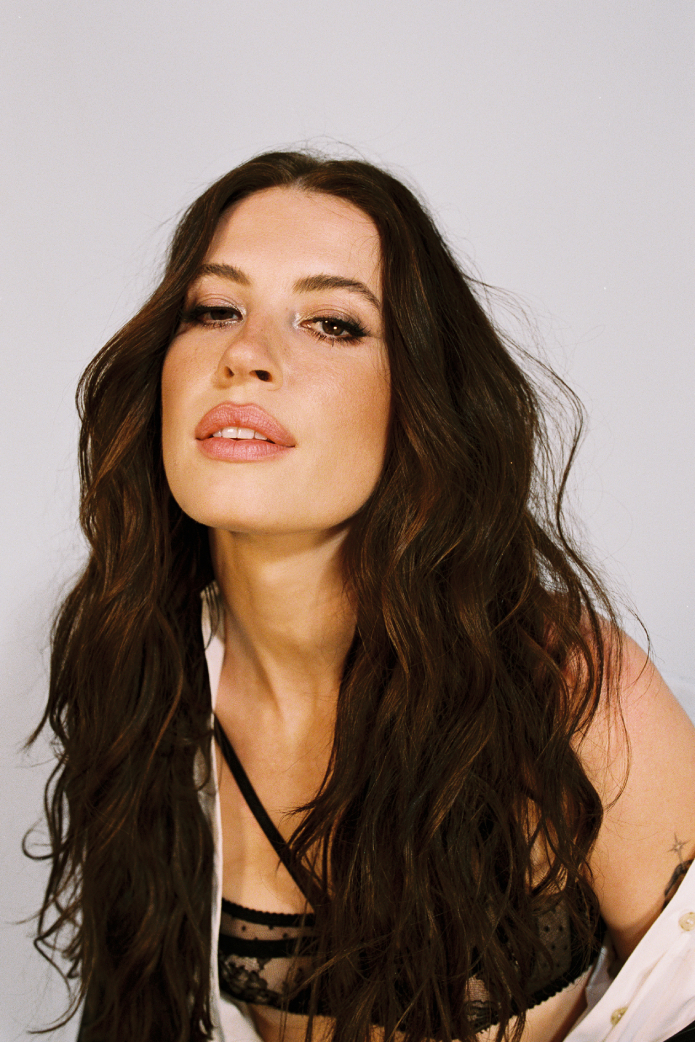

“It brought me to the core of all the things that you just pile so much shit on top of, that you quiet it down,” she admits. “All of this looks so amazing and so grand, but the seed of it all was rooted in a place of feeling rejected and growing up knowing I was queer from a young age. All the ways that I hid from it by releasing music and becoming successful was to show I was worthy.”
Stepping back into music, Fletcher is rewriting her relationships, with the industry, with fans and herself. She doesn’t want to be seen as a role model or deal with the lack of boundaries that come with a music career. Instead, she wants to be safer; to be in control. “I had to take all this shit away to get back down to the root of why I started [this] and I put some new soil around it, and to go back to that place,” she says.
All of this looks so amazing and so grand, but the seed of it all was rooted in a place of feeling rejected and growing up knowing I was queer from a young age
“There is so much healing in this album, this album is an exploration of all the infinite manifestations of love and all emotions that come up. I’m going to give the microphone to each part of me that wants to be expressed – and that is love, especially when you give voice to the icky, ugly shit that you’ve repressed for so long.” It’s a change, she tells me, to get her through the arduous journey of healing. Just yesterday, in her hotel room, she had to intervene with a personal self-care mantra (“This present moment is perfect”) while caught in an anxiety-induced low moment. Today, on the other side of making her new album, and improving her health, Fletcher seems more content, and more assured of her direction.
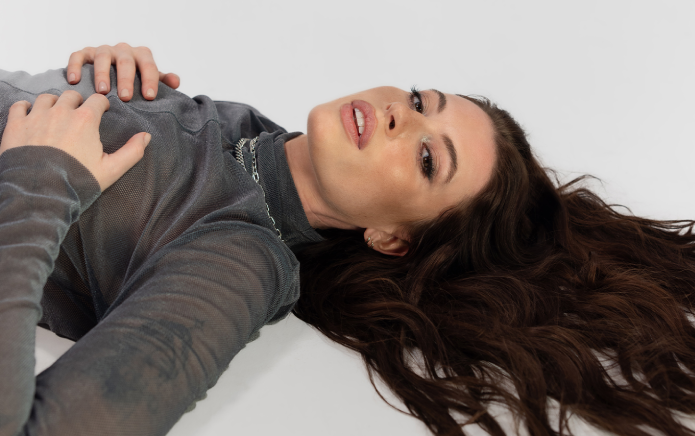
Fletcher’s discography, in many ways, is all about love. Whether it’s longing to “unfuck” someone on ‘Undrunk’ or contemplating whether you’re born to love someone on ‘Lead Me On’, she attentively grapples with the nuances of queer relationships, longing and romantic regret. On In Search Of the Antidote, she approaches love from a new lens. Within the album, Fletcher philosophises over her relationships and finding a cure for feeling all too much. The antidote, she confirms, is within yourself; an outcome she learned from rounds of conversations with friends, therapists and self-reflection. Her album is vulnerable and reaches for something bigger than chart-ready tracks. So, what does love look like to Fletcher? It’s beautiful, radical and “the most terrifying, unsafe thing in the entire world”. After all, as bell hooks writes – ‘the practice of love offers no place of safety’. And within this unguarded state, Fletcher decides love is a connection, with herself, and her fans: “It’s such a shared love and cycle of this energetic exchange that has been the ultimate antidote.”
On the record’s close-out, she wraps up her album with a semi-acoustic power tune ‘Antidote’ dedicated to closure and the closeness to a new partner. There’s a mellowness, like on her debut album Girl Of My Dreams, that shows a newfound patience and empathy for herself. Whether or not you think this latest project is better than her previous album, the singer remains nonplussed. As a reputable “career girlie”, her next plans are to manifest big ambitions. She wants to work with Kacey Musgraves for “a queer little country vibe” and notes that she would love to collaborate with Reneé Rapp, Hayley Williams and Miley Cyrus too. And as her name continues to grow, is she worried about how she, both Cari and Fletcher, are seen? The short answer is no. So, when Fletcher inevitably becomes a topic of a new sapphic saga, she’s ready to shrug off the weight of it: “I’m not a role model. I don’t want to be, and I’ve never been one” – she’s got her healthy mechanisms to stay centred and present.
You’re not always able to tell Fletcher apart from Cari. But, on her new record, you see more of the person behind the popstar, in ways that Girl Of My Dreams couldn’t give. Somewhere between the album’s charged emotional content and diaristic lyrics, you can believe that Cari, not just Fletcher, has finally begun to heal.
Fletcher’s second album In Search Of the Antidote is out now.
This interview is taken from the April 2024 issue of GAY TIMES. Head to Apple News + for more exclusive features and interviews from the issue.
